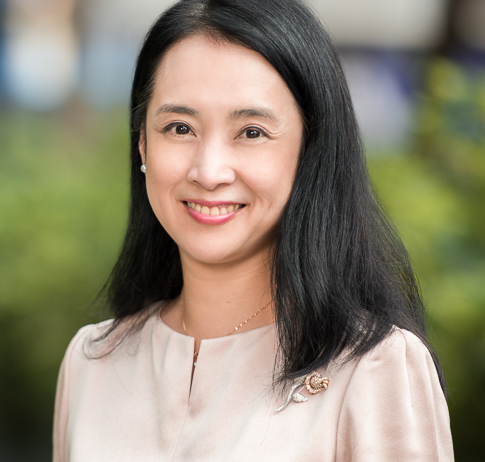Article
Update on the developments of Hong Kong's proposed tax concession regime for family offices
21 April 2023 | Applicable law: Hong Kong | 5 minute read
The House Committee of the Legislative Council of Hong Kong has just today (21 April 2023) considered a report (the 'Report')1 from the Bills Committee on the Inland Revenue (Amendment) (Tax Concessions for Family-owned Investment Holding Vehicles) Bill 2022 (the 'Bill'). The Report sets out the further proposed amendments (the 'Amendments')2 to the Bill (as gazetted on 9 December 2023) made by the Inland Revenue Department ('IRD') after considering comments by members of the Bills Committees and submissions made by various professionals (including comments made by Withers)3. Unless members of the House Committee have any further comments by 29 April 2023, the second reading of the Bill (as amended) should resume at the Legislative Council on 10 May 2023.
As set out in our article published on 24 March 2023, Family Investment Holding Vehicles ('FIHVs') are at risk of being subject to Profits Tax in Hong Kong with respect to both their Hong Kong sourced and foreign sourced investment income. The Bill aims to offer certainty so that profits derived by an FIHV from 'Qualifying Transactions' shall be charged at a concessionary tax rate (which will be 0% for the tax year 2022-23) with retrospective effect from 1 April 2022, provided that certain conditions are met. In addition, our understanding is that an FIHV which is subject to the tax concession treatment under the Bill should not be subject to Profits Tax on its foreign sourced investment income which is derived from or is incidental to its Qualifying Transactions.4
Update to the conditions
Management requirement for the FIHV and the ESF Office
The requirement that both the FIHV and the eligible single family office which manages the investments of the FIHV (the 'ESF Office') must have their 'central management and control' exercised in Hong Kong has been modified to a requirement of 'normally managed or controlled'.5 Thus if an overseas family has hired sufficient professionals in the ESF Office to manage the investment activities of the FIHV in Hong Kong, this requirement should generally be met even if the key or strategic decisions makers are abroad.
Ownership requirement
The Amendments further recognize that up to 25% of the FIHV and the ESF Office may be owned by a charitable entity that is exempt from tax under section 88 of the IRO. If that is the case, as long as the rest (i.e. 75% or more) of the beneficial interest of the FIHV and ESF Office is held by one or more members of the 'family' (which is widely defined under the Bill), the ownership requirement will be met.
If, however, the FIHV or ESF Office is owned by 'unrelated persons'6 to the family other than a charitable entity, then it is still required that the family members must cumulatively hold 95% or more of the beneficial interest in both the FIHV and the ESF Office.
The Amendments also expand the provisions which attribute ownership of the FIHV and ESF Office to the family members via complex trust structures. If certain conditions are met to demonstrate that a family member has 'connections' with a trust structure, then the Commissioner of Inland Revenue ('CIR') is empowered to treat the family ownership requirement as fulfilled if he is satisfied that it is 'highly probable' that the family members have sufficient interest in the FIHV and ESF Office via the trust structure.7 This may be the case for example if the FIHV and ESF Office are underlying companies held by a master family trust, and the family members are 'connected' to the master trust by being beneficiaries of 'baby trusts' which in turn are beneficiaries of the master trust.
Qualifying Transactions
It is clarified in the Report8 that although only the trading profits of an FIHV (and the family special purpose entity ('FSPE') it holds) from 'Qualifying Transactions' arising from the disposal of financial assets listed under Schedule 16C9 would be taxed at the concessionary rate, such financial assets could include 'real estate investment trusts' and 'virtual assets exchange traded funds'.
Further, the Report expressly referred to the concessionary treatment of trading profits of the FIHV (or FSPE) when it invests in immovable properties outside Hong Kong or in virtual assets via private investment companies, as long as certain tests10 concerning the disposal of such private companies are met. Even if these tests could not be met, the Amendments remove the 'tainting' effect of such non-qualifying transactions, such that only the trading profits from the disposal of such private companies by the FIHV (or FSPE) will be subject to Profits Tax under the normal principles (as set out in the IRO), but not the trading profits with respect to the other Qualifying Transactions of the FIHV (or FSPE).
Incidental Transactions
The IRD clarifies11 that income from 'Incidental Transactions' includes interest income arising from the holding of the Schedule 16C assets by the FIHV (or FSPE), and the 5% threshold still applies for such income to be subject to the concessionary treatment.
However, the 5% threshold would likely only be a concern for an FIHV (or FSPE) if it derives Hong Kong sourced interest income. If the incidental income is sourced outside of Hong Kong and if the FIHV fulfils the conditions to qualify for concession under the Bill, our understanding is that such income accruing to the FIHV (or FSPE) and is derived from or is incidental to its 'Qualifying Transactions' should not be caught within the Profits Tax net in Hong Kong.12
The future
The Amendments and clarifications are welcomed and allow more flexibility for family investment holding structures owned by charities and trusts to qualify for the tax concession. Families looking to take advantage of the concession should seek advice as soon as possible, including considering whether an advance ruling from the CIR should be sought to ensure that their structure and income from proposed investment activities are eligible for the tax concession.
Should you have any questions, please feel free to reach out to Katie Graves, Wei Zhang or Deirdre Fu for a consultation.
- See link to the to the report of the Bills Committee dated 20 April 2023.
- See Appendix 5 to the Report setting out the proposed Committee Stage Amendments.
- See the link to the response by the IRD to the submissions made by various professional advisors and bodies (including that submitted by Withers).
- Based on the current proposed section 3 of the Bill which sets out that the tax concession provisions applying to FIHV under the Bill should be added as 'concession provisions' under the Inland Revenue Ordinance ('IRO') and as such, generally the foreign sourced income accruing to the FIHV should not be caught within the new foreign sourced income regime in Hong Kong.
- Reference may be made to paragraph 27 of the DIPN 44, which sets out that the concept of 'normally managed or controlled in Hong Kong', as compared to that of 'central management and control' established in common law, has a broader meaning as it does not require that both management and control be exercised in Hong Kong. 'Management', in this context, refers to management of daily business operations, or implementation of the decisions made by top management, etc. 'Control', on the other hand, refers to control of the whole business at the top level, including formulating the central policy of the business, making strategic policies of the company, choosing business financing, evaluating business performance, etc.
- which can include individuals or entities which no family members have any interest.
- Cf the proposed sections 8 A to I of Schedule 16 E of the IRO.
- In paragraphs 30 and 31 of the Report.
- Schedule 16 C of the IRO, which also applies to the 'unified funds regime' under Section 20 AM of the IRO.
- These include the 'immovable properties test'; the holding period test; the control test and the short-term assets test. (cf Sections 12 and 13 of the Schedule) and Annex C of the Brief.
- In the response to the submissions made by various professional advisors and bodies mentioned in footnote 2 above.
- Cf footnote 4 under section 15 H of the IRO, the foreign sourced interest, dividends or disposal gains accruing to the FIHV (or FSPE) and is derived from or is incidental to the transactions of the FIHV (or FSPE) which qualifies for concession under the Bill would be 'carved out' from the definition of 'specified foreign sourced income'.


